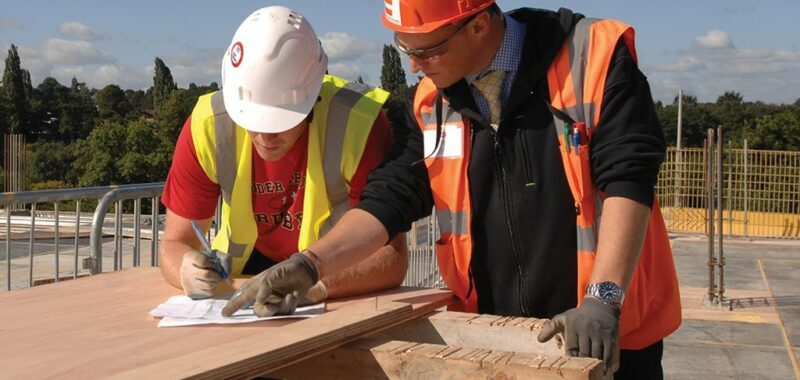Apprenticeships are the biggest source of social value for construction firms, according to new research.
An analysis of 329 construction contracts with a combined value of £3.2bn concluded that they had delivered £860m worth of social value for the firms delivering them.
The report by Social Value Portal for procurement expert Scape found employment initiatives made up 16.4 per cent of contractors’ community contributions last year.
Despite challenging economic conditions, investment by firms in training schemes has increased since Scape’s first report in 2020 – from 17 per cent to 27 per cent.
The data covers public sector projects that have to comply with social value legislation, as well as private developments where the investor prioritised social and community outcomes.
Of the contracts analysed, 282 projects enabled more than 15,600 weeks of apprenticeship placements on site across the UK.
Nathan Goode, chief strategy officer at Social Value Portal, said: “We’re encouraged by insights in this report, particularly around the year-on-year growth. While there is always room for improvement, the construction industry is clearly embracing its role in creating positive social and environmental outcomes.”
Firms delivering public sector contracts are required to demonstrate the “social, economic and environmental benefits” that will be generated while working on projects, under the Public Services (Social Value) Act, which came into force in 2013.
But the report also revealed a regional skills divide across the UK.
The West Midlands is the top area for creating apprenticeships, delivering an average of 10 weeks of training per £1m of contract spend. Wales is next, with nine weeks.
Despite representing the highest total contract value of those analysed, London lags behind, at just 4.5 weeks per £1m.
Industry figures told Construction News in May that one problem is that councils in the capital require that apprentices are drawn from the borough in which the scheme sits.
“I could have 10 apprentices in Newham,” said James York, Morgan Sindall Construction’s area director for Thames Valley. “If I got another [project], I would have to find another three, so I would have to get rid of three from the first site.”
Another concern is that councils also include a blanket apprenticeships ratio on all but the smallest developments.
“There is a really unrealistic set of expectations levied upon us by some local authorities, because they often lack an understanding of how construction packages work and they don’t have an understanding of the industry,” said Lucille Watkins-Brazier, head of social impact at Lendlease.
Scape group chief executive Mark Robinson said: “There is still more to be done – with Labour’s mission to drive economic growth and jobs creation, it is evident that there is a real opportunity for government and industry to work together to ensure best practice is reflected consistently across the country. The findings of this report show a clear route for how this can be achieved and the benefits waiting to be realised.”
The publication of the report came as data was released by Merseyside procurement specialist Fusion21 that showed it had helped 114 apprentices into roles with trades ranging from plumbing to joinery, painting and decorating.
Suppliers on Fusion21’s frameworks had also organised 815 volunteering days for community projects. Donations from firms, including materials and money, totalled £803,741.

